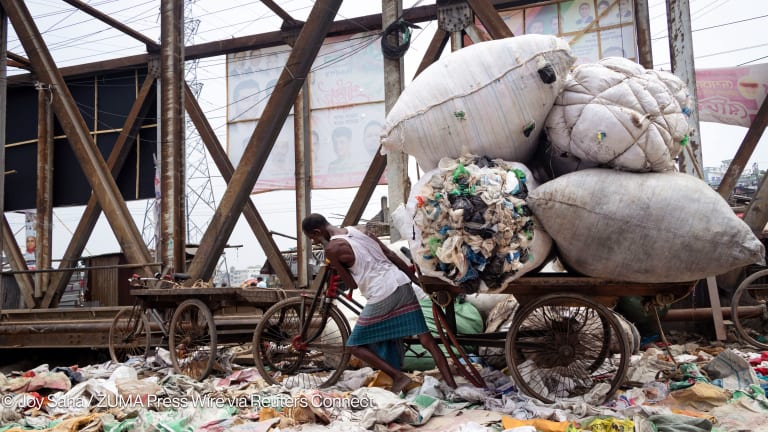
Isaac Newton is quoted as saying, “If I have seen further, it is by standing on the shoulders of giants.” This mentality is, unfortunately, trailing behind our current age of digital scientific revolution.
While our ability to collect immense amounts of data, conduct impressive analysis, and share it all over the world has radically improved, the latter is impeded by a traditional scientific culture of “publish or perish.” In almost all areas of research, the career advancement system is still based on who has the most publications or citations, so naturally the idea of being the first to publish, or get “the scoop” on the data, is seen as an advantage in the eyes of researchers.
So how can we change this mentality? And, perhaps even more importantly, why should we?
Breaking the data silos
Every day, immense quantities of field data are collected and stored by NGOs all around the world. Their data is used for needs assessments, measuring and evaluation, and informing future interventions. While the data gathering means are generally quite different (paper questionnaires, spreadsheets, and online surveys), its end destination after a project is often the same: data silos and on-site servers.
This does not have to be the final resting place for data: hard-earned data can be shared, extending its lifetime and utility to support future projects or research groups that otherwise would never have had the opportunity or means to collect it themselves. Sadly, 85% of research data is never reused, and international development programs are no exception to this reality.
When NGOs make their data public, they increase transparency with donors, enable others to corroborate their results, and ultimately, contribute to the pace of global development. Sharing allows other NGOs, academic researchers, and public health agencies to reuse and build on their data. In other words, they are standing on each other’s shoulders.
Data sharing also gives fair treatment to the communities that NGOs support, who are often in the dark about where their data is going and what the benefit is for them. Open information is a step forward towards decolonizing development work, and ending purely extractive practices in clinical and field research.
The case for open data
NGOs are required to protect the confidentiality of beneficiaries, safeguarding their rights and adhering to strict data ethics. The threat of disclosing data that should not have been has caused a culture of fear towards making development data publicly open.
Although NGOs have widely adopted informed consent, rarely do consent forms mention the right to share de-identified data publicly. When NGOs want to venture into open data, it is unfortunately unfeasible — if not impossible — to go back to subjects and request consent to share their data. Effective planning from the start of research is a vital step towards this new culture of collaborative and transparent research.
Although open data may be a new arena for many organizations, they should not feel they are alone in this. NGOs and for-profit entities can learn how to improve their processes and be better stewards of open data from the Principles of Digital Development, a set of guidelines published in 2016 with the intention of helping organizations succeed in applying digital technologies to development.
NGOs can also see what kind of data other organizations are sharing, explore their data sets, and learn from their experiences on Humanitarian Data Exchange, a platform created by the U.N. Office for the Coordination for Humanitarian Affairs to find, share, and use humanitarian data.
Lastly, practitioners may dive deeper into this topic with the Open Data Handbook, an online guide developed by the Open Data Foundation[a] that explains the basic concepts of “open data” and how to harness its potential.
Making data sharing the norm rather than an accessory
Fixing the data waste issue starts with proper planning. Data sharing is only effective if it was intended from the start of a project: if consent forms included clauses that enable practitioners to share de-identified data; if the data that is produced is of good quality; and if it has a rich metadata that will allow others to understand its nature and reuse that information.
We have to speak openly about this issue, understand why data ends up locked in silos in the first place, and raise the alarm when projects are designed without any indication of how data will be shared. If we ensure, when first drafting a project proposal, that we are considering what part of our data will be shared and how, then we are already making a considerable improvement.
At Teamscope, we have put together a data sharing checklist for NGOs and practitioners to help them understand the common pitfalls in open data, and how it impacts every step of a project’s pipeline, from proposal writing to final data dissemination.
An open data culture depends on all of us. By being custodians of good data ethics, we can stop valuable information being wasted and ensure that everyone can build upon the efforts of those who came before us.









